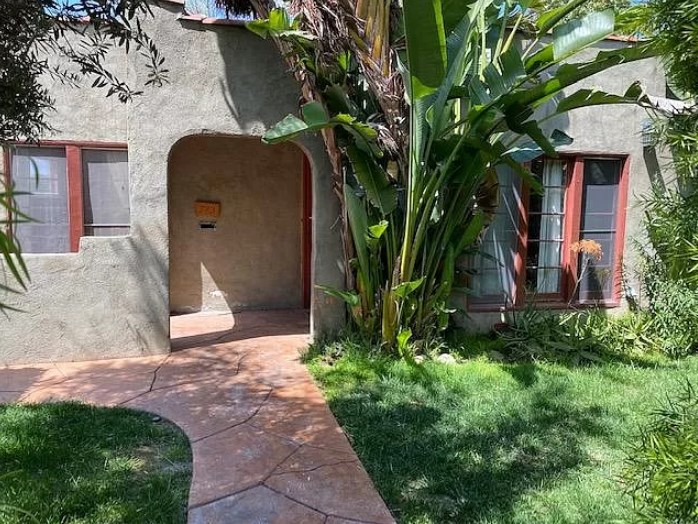
Homes Around Me For Rent – Finding the right rental home in your neighborhood is a crucial decision that can greatly impact your quality of life. Whether you’re a young professional looking for your first place, a growing family in need of more space, or someone who prefers the flexibility of renting, there are numerous benefits to be gained from choosing a rental home in your area. This article will explore the advantages of renting in your neighborhood, Things to Look for in a Rental Property Search, different types of rental homes available, tips for finding the best rental homes, negotiating rent and lease terms, understanding rental agreements and tenant rights, maintaining a rental home, common mistakes to avoid, and budgeting for rent and other housing expenses.
Benefits of Renting a Home in Your Neighborhood
One of the primary benefits of renting a home in your neighborhood is the convenience and familiarity it offers. You already know the area well, including the nearby amenities, schools, parks, and transportation options. This can save you time and effort when it comes to daily activities such as commuting to work or school, running errands, or participating in community events. Additionally, renting in your neighborhood allows you to maintain existing relationships with friends and neighbors, fostering a sense of community involvement and support.
Renting a home in your neighborhood can also be cost-effective compared to other housing options. Owning a home comes with additional expenses such as property taxes, maintenance costs, and mortgage payments. Renting eliminates these financial burdens and provides more flexibility in terms of budgeting. Furthermore, renting allows you to test out different neighborhoods before committing to buying a property, ensuring that you make an informed decision when the time comes.
Things to Look for in a Rental Property Search
When searching for a rental home, several factors should be taken into consideration to ensure that you find the perfect fit for your needs. First and foremost is your budget and affordability. Determine how much you can comfortably spend on rent each month, taking into account other expenses such as utilities, groceries, and transportation. It’s important to strike a balance between finding a home that meets your needs and staying within your financial means.
Location and accessibility are also crucial factors to consider. Think about your daily routine and the places you frequent the most, such as work, school, or recreational activities. Look for rental homes that are conveniently located near these destinations to minimize commuting time and expenses. Additionally, consider the neighborhood’s safety, proximity to amenities like grocery stores and healthcare facilities, and access to public transportation.
Another important consideration is the amenities and features offered by the rental home. Make a list of must-have features such as the number of bedrooms and bathrooms, kitchen appliances, parking availability, laundry facilities, and outdoor space. Prioritize these features based on your lifestyle and preferences to narrow down your options.
Lastly, safety and security should never be overlooked when searching for a rental home. Research the crime rates in the neighborhood and inquire about security measures in place, such as gated communities or surveillance systems. Having a sense of security and safety in your new house is crucial.
Types of Rental Homes Available in Your Area
Rental homes come in various types, each offering unique advantages and considerations. Single-family homes are standalone properties that provide privacy and often come with a yard or outdoor space. They are ideal for families or individuals who value space and independence.
Apartments and condos are another popular option for renters. Apartments are typically part of a larger building complex with shared amenities such as gyms or swimming pools. Condos, on the other hand, are individually owned units within a larger building or community. Both options offer convenience in terms of maintenance and often provide additional security features.
Townhouses and duplexes offer a middle ground between single-family homes and apartments. They are usually multi-level properties that share walls with neighboring units. Townhouses often come with amenities such as a backyard or garage, while duplexes offer the advantage of having only one shared wall.
For those seeking a more mobile lifestyle, mobile homes and RVs can be an appealing option. These homes are designed to be easily transported and offer flexibility in terms of location. However, it’s important to consider the availability of suitable parking and the associated costs of utilities and maintenance.
How to Find the Best Rental Homes in Your Neighborhood
Finding the best rental homes in your neighborhood requires thorough research and utilizing various resources. One of the most effective ways to search for rental homes is through online listings and real estate websites. These platforms allow you to filter your search based on location, price range, and specific features. They often provide detailed descriptions, photos, and contact information for each property.
Local newspapers and classified ads can also be a valuable resource for finding rental homes in your area. Many landlords still advertise their properties through these traditional mediums, so it’s worth checking regularly for new listings. Additionally, community bulletin boards or online forums specific to your neighborhood may have postings from individuals looking to rent out their homes.
Referrals from friends and family can be another excellent way to find rental homes in your neighborhood. They may have firsthand knowledge of available properties or know someone who does. Don’t hesitate to reach out to your network and ask for recommendations.
Working with a real estate agent specializing in rentals can also streamline your search process. They have access to a wider range of listings and can help match you with properties that meet your criteria. Real estate agents can also assist with negotiations and lease agreements, ensuring that you make an informed decision.
Tips for Negotiating Rent and Lease Terms
Negotiating rent and lease terms can help you secure a better deal and ensure that both parties are satisfied with the agreement. Start by researching market rates for similar rental homes in your neighborhood. This will give you a benchmark to compare prices and determine if the asking rent is reasonable. If you find that the rent is higher than average, you can use this information as leverage during negotiations.
Building a good relationship with the landlord or property manager is essential when negotiating rent and lease terms. Show them that you are a responsible tenant by providing references, demonstrating stable income, and maintaining good credit. Landlords are more likely to consider concessions or discounts for tenants they trust.
When negotiating, don’t be afraid to ask for concessions or discounts. This could include a lower monthly rent, reduced security deposit, or waived fees. Highlight any unique circumstances or qualities that make you an ideal tenant, such as a long-term lease commitment or willingness to take care of minor repairs.
Reviewing and understanding the lease agreement is crucial before signing any documents. Spend some time carefully reading the terms and conditions; pay particular attention to the sections that address maintenance obligations, rent increases, and early termination If there are any unclear or unfair provisions, discuss them with the landlord and seek clarification or amendments if necessary.
Understanding Rental Agreements and Tenant Rights
Rental agreements are legal contracts that outline the rights and responsibilities of both tenants and landlords. It’s important to have a basic understanding of these agreements to protect yourself and ensure a smooth tenancy.
The basic terms and conditions of a rental agreement typically include the duration of the lease, the amount of rent, payment due dates, security deposit requirements, and rules regarding pets or smoking. It’s essential to review these terms thoroughly before signing to avoid any surprises later on.
As a tenant, you have legal rights and protections that vary depending on your jurisdiction. These rights typically include the right to privacy, habitable living conditions, protection against discrimination, and the right to request repairs or maintenance. Familiarize yourself with these rights to ensure that your landlord is fulfilling their obligations.
Landlords also have responsibilities towards their tenants. They are required to provide a safe and habitable living environment, maintain the property, and address any repairs or maintenance issues promptly. If you encounter any problems or violations of your rights, it’s important to communicate with your landlord and, if necessary, seek legal advice.
Maintaining a Rental Home: Responsibilities of Tenants and Landlords
Maintaining a rental home is a shared responsibility between tenants and landlords. Tenants are generally responsible for regular maintenance and repairs that arise from everyday wear and tear. This includes tasks such as changing light bulbs, keeping the property clean, and reporting any minor issues promptly to the landlord.
Landlords, on the other hand, are responsible for major repairs and ensuring that the property is in a habitable condition. This includes fixing plumbing or electrical issues, addressing structural problems, and maintaining common areas if applicable. Tenants need to communicate any significant maintenance needs to their landlord promptly.
Regular cleaning and upkeep of the rental home is essential for both tenants and landlords. Tenants should keep the property clean and tidy, while landlords should ensure that the property is in good condition before new tenants move in. Regular inspections can help identify any maintenance needs or potential issues early on.
Reporting and addressing issues promptly is crucial for both tenants and landlords. Tenants should inform their landlord of any problems or concerns as soon as they arise to prevent further damage or inconvenience. Landlords should respond promptly to these reports and take appropriate action to resolve the issue.
Common Mistakes to Avoid When Renting a Home
When renting a home, there are several common mistakes that tenants should avoid to ensure a smooth and enjoyable experience. One of the most significant mistakes is not reading the lease agreement thoroughly before signing. Take the time to review all terms and conditions, seek clarification if needed, and ensure that you understand your rights and responsibilities as a tenant.
Failing to inspect the property before moving in is another common mistake. It’s important to thoroughly inspect the rental home, checking for any existing damages or issues. Take photos or videos of the property’s condition and document any pre-existing damage in writing. This will shield you from being held accountable for pre-existing damages.
Ignoring safety and security concerns is a mistake that can have serious consequences. Before renting a home, assess the neighborhood’s safety, inquire about security measures in place, and ensure that the property has functioning locks and smoke detectors. Your security must always come first.
Not communicating effectively with the landlord or property manager can lead to misunderstandings and conflicts. Establish clear lines of communication from the beginning and promptly address any concerns or issues that arise. Good communication can help build a positive relationship with your landlord and ensure that your needs are met.
Budgeting for Rent and Other Housing Expenses
Budgeting for rent and other housing expenses is essential to ensure financial stability and avoid unnecessary stress. Start by calculating your monthly housing budget, taking into account your income, savings, and other financial obligations. Experts generally recommend spending no more than 30% of your monthly income on rent.
In addition to rent, consider other housing expenses such as utilities, insurance, and maintenance costs. Utilities include electricity, water, gas, internet, and cable services. Research average costs for these utilities in your area to get an estimate of what to expect.
Insurance is another important expense to consider. Renter’s insurance provides coverage for your personal belongings in case of theft, fire, or other unforeseen events. It’s relatively affordable and can provide peace of mind knowing that you are protected financially.
Maintenance costs should also be factored into your budget. While landlords are responsible for major repairs, tenants are typically responsible for minor maintenance tasks such as replacing light bulbs or air filters. Additionally, unforeseen repairs or emergencies can occur, so it’s wise to set aside some funds for these situations.
Planning for unexpected expenses and emergencies is crucial when budgeting for housing. Establish an emergency reserve large enough to pay for three or six months’ worth of living expenditures. This will act as a safety net in the event of an unexpected illness, job loss, or other calamity.
Making the Right Choice for Your Next Rental Home
In conclusion, finding the right rental home in your neighborhood is a decision that should not be taken lightly. By considering the benefits of renting in your area, factors to consider when searching for a rental home, different types of rental homes available, tips for finding the best rental homes, negotiating rent and lease terms, understanding rental agreements and tenant rights, maintaining a rental home, common mistakes to avoid, and budgeting for rent and other housing expenses, you can make a decision based on knowledge that suits your tastes and needs.
Thorough research and utilizing various resources such as online listings, referrals, and real estate agents can help you find the best rental homes in your neighborhood. Negotiating rent and lease terms can lead to better deals and ensure a mutually beneficial agreement. Understanding rental agreements and tenant rights is crucial to protect yourself and ensure a smooth tenancy.
Maintaining a rental home requires shared responsibilities between tenants and landlords. Regular cleaning, reporting issues promptly, and addressing maintenance needs are essential for both parties. Avoiding common mistakes such as not reading the lease agreement thoroughly or ignoring safety concerns can prevent unnecessary conflicts or financial burdens.
Lastly, budgeting for rent and other housing expenses is crucial for financial stability. Calculate your monthly housing budget, consider additional costs such as utilities and insurance, and plan for unexpected expenses and emergencies. By prioritizing safety, affordability, and convenience when choosing a rental home, you can make the right choice for your next living arrangement.




2 comments
Pingback: Affordable Homes To Rent Near Me - House For Rent Near Me
Pingback: Where Can I Find Homes For Rent - House For Rent Near Me